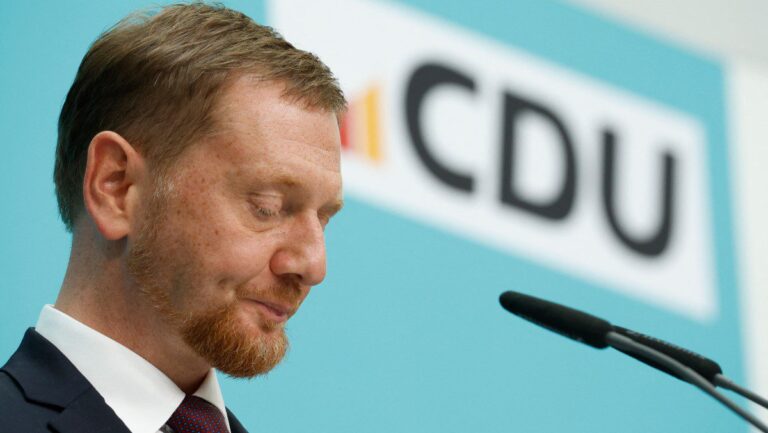Early Monday morning, October 17th, in a bid to bring stability to spooked financial markets—which had been reeling ever since the September announcement of the Truss Cabinet’s ‘mini-budget’—new finance minister, Chancellor Jeremy Hunt, scrapped £45 billion in proposed tax cuts.
Taking over from his unfortunate predecessor, Kwasi Kwarteng, who Prime Minister Liz Truss sacked last Friday after only 38 days on the job, Hunt has hereby made mince meat of the former pairs’ pet project—which they envisaged as launching the U.K. into an era of high economic growth.
In a video message, the now fourth Chancellor (in the same amount of months) said that “the main objective for our country right now is stability.” Soon after, the British pound rebounded, borrowing costs went down, and British stocks rose, outperforming European ones.
Caution however remains among investors, as a full fiscal announcement by Hunt is yet to come at the end of October, with the Bank of England holding a critical meeting in early November.
As part of Hunt’s intervention, a 1% cut to income tax is deferred “indefinitely” while a proposed cut to corporation tax (which would also affect the self-employed and small companies) is relegated to the rubbish bin.
The proposed tax scheme—the total revenue of which would be the highest since 1950—could, then, have easily been hatched by a Labour government. It is one more data point serving to illustrate that the Tory Party, in its present make-up, can hardly be deemed a conservative entity—and indeed, has not been since David Cameron.
Yet, in earnest, Hunt defended the need for a responsible as well as balanced state budget, as he explained that:
No government can control markets but every government can give certainty about the sustainability of public finances … We will reverse almost all the tax measures in the growth plan. At a time when markets are rightly demanding a commitment to sustainable finances, it is not right to borrow to fund this.
In addition, the energy price guarantee—a measure that would allow for average bills to be held at £2,500 for the next two years (which would have cost the Treasury £100 billion)—will only remain universal until April next year.
After that point, it will become targeted and capped, and be limited to some households only. According to the Treasury, it would be “irresponsible” for the government to continue “exposing the public finances to unlimited volatility in international gas prices.” After April 2023, ministers will review how they would support households and businesses with their energy bills. The change would mean that annual energy bills, after April, could reach £4,337 for an average household.
The course-correction would however save the government around £32bn a year, it said.
As news of these announcements reached British citizens, it was bedlam in the House of Commons, where Hunt was due to elaborate on his plan and answer questions from MPs later in the afternoon.
Labour leader Sir Keir Starmer, smelling blood in the water, took full advantage of the situation. With her credibility already having taken a (possibly fatal) blow since last Friday, Truss’ apparent shying away from facing the House during the customary ‘question time’ did not help matters.
Starmer accused the prime minister of “hiding away,” saying that she was “scared of her own shadow.” Other MPs soon joined in the mockery, such as Labour’s Stella Creasy, who asked whether Truss might be “cowering under her desk and asking for it all to go away.”
Countering these and other disparaging remarks was Commons leader Penny Mordaunt, who announced she was deputising for Truss. She instead explained the PM was “detained on urgent business,” adding “I can assure the House that, with regret, she is not here for a very good reason.”
Eventually, Truss did enter the chamber, to be present during Hunt’s statement. Without showing much emotion, she silently sat behind her newly appointed Chancellor as he defended the reversal of nearly all the policies she campaigned on and which won her the Tory premiership less than six weeks ago.
“We are a country that funds our promises and pays our debts,” Hunt told his fellow MPs, adding that more decisions of “eye-watering difficulty” were bound to be made. Critics fear a return to the kind of austerity measures seen in the early 2010s, something Hunt is denying, admitting however that government departments would need to find “efficiencies.”
It was clear from the proceedings that while Hunt received his fair amount of criticism, his calm yet robust defence of the newly chartered course at least returned some serenity to the chamber.
Yet, while his performance was of some avail, Truss’s credibility (and, by extension, that of the Tory party) is marred; with senior Tory backbencher Sir Charles Walker as the latest in-house dissenter, a total of 5 Tory MPs have called for her resignation.
The latest poll, which has Labour at 52 points over the Tories’ 23 points, only adds to the Tories’ predicament. Truss’ position, then, is extremely precarious. In the eyes of many, the matter of her resignation, imposed or not, is not a question of if but when.
At least pro forma, her Chancellor is still by her side. Hunt has voiced confidence that Truss will still be PM by Christmas, and has called on his fellow MPs to give her a chance.
Yet, one cannot escape the impression that given Truss’ ineffectiveness (even helplessness), someone else now appears to be at the helm—her own Chancellor. Or, in the words of Tory MP Sir Roger Gale talking to Sky News: “There’s real power in Downing Street—but it’s not in Number 10, it’s in Number 11.”





